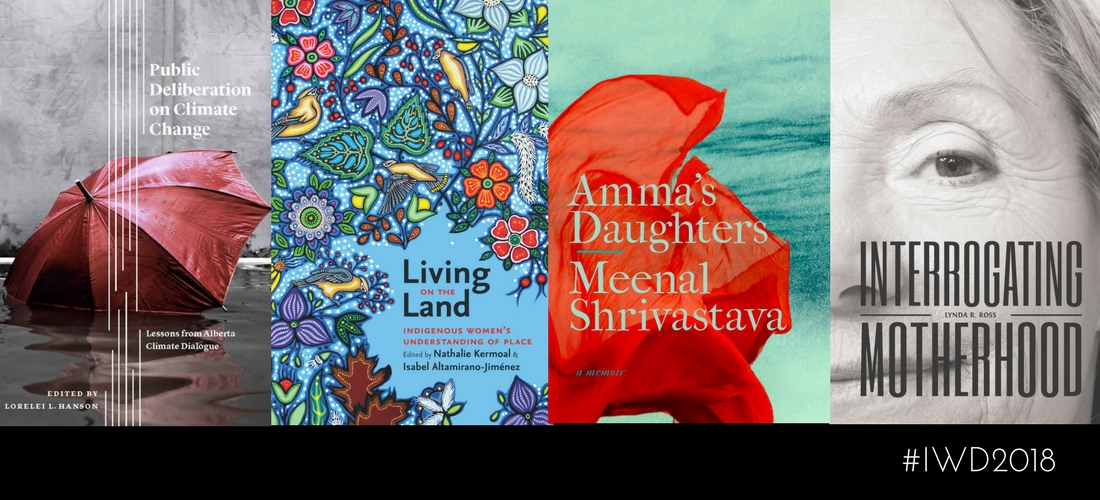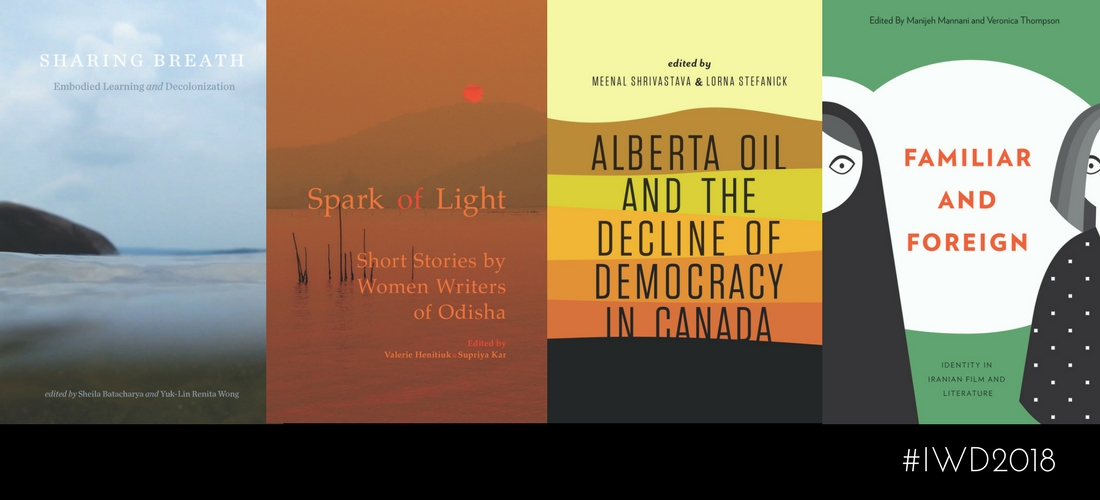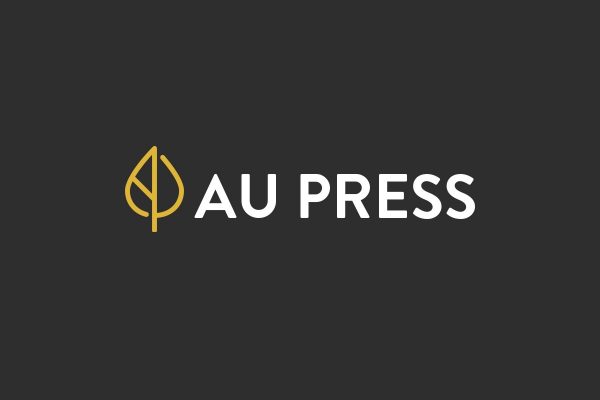On International Women’s Day (March 8), we celebrate the achievements of women and we take a hard look at what still needs to be done to achieve gender parity and inclusiveness in our society.
Last year for International Women’s Day, we featured at books written about women by women. This year, we are looking back on the past three publication years and celebrating the diversity of what women have contributed to our catalogue and to scholarship. From climate change to motherhood and from democracy to food studies, women scholars are producing relevant and important work.

Public Deliberation on Climate Change is a collection edited by Lorelei L. Hanson that looks at how public deliberation can help citizens and governments discuss the most complex and intractable issues like climate change.
In An Ethnohistorian in Rupert’s Land, Jennifer Brown, one of the leading ethnohistorians in North America, investigates the surprising range of interactions among Indigenous people and newcomers in the old HBC territory from the 1600s to the present.
In Interrogating Motherhood, Lynda Ross explores the topic of mothering from the perspective of Western society and encourages readers to identify and critique the historial, social, and political contexts in which mothers are understood.
Edited by Charlene Elliott, How Canadians Communicate VI: Food Promotion, Consumption, and Controversy is a timely and thought-provoking look at food as a system of communication through which Canadians articulate cultural identity, personal values, and social distinction.
Living on the Land, edited by Nathalie Kermoal and Isabel Altamirano-Jiménez, is an interdisciplinary volume that explores Indigenous women’s environmental knowledge and how that knowledge is often marginalized.
Edited by Valerie Henitiuk and Supriya Kar, Spark of Light is a diverse collection of short stories by women writers from the Indian province of Odisha.
Visiting with the Ancestors, edited by Laura Peers and Alison K. Brown, is the story of an effort to build a bridge between museums and source communities, in hopes of establishing stronger, more sustaining relationships between the two and spurring change in prevailing museum policies.

With the particular aim of moving beyond the polarizing rhetoric that has characterized the issue of abortion and reproductive justice for so long, Without Apology, edited by Shannon Stettner, is an engrossing and arresting account that will promote both reflection and discussion.
Alberta Oil and the Decline of Democracy in Canada, edited by Meenal Shrivastava and Lorna Stefanick, probes the impact of Alberta’s powerful oil lobby on the health of democracy and engages in the ongoing discussion of the erosion of political liberalism in Canada and the West.
Iran’s revolutionary history has given rise to complex and contested discussions of religion, patriarchy, and politics. Familiar and Foreign, edited by Manijeh Mannani and Veronica Thompson, engages with Iranian literature and film to offer a new perspective on this country’s multi-faceted evolution.
Leaving Iran by Farideh Goldin is an intimate portrait of displacement and the construction of identity and a story of family loyalty and cultural memory.
Sharing Breath: Embodied Learning and Decolonization edited by Sheila Batacharya and Yuk-Lin Renita Wong investigates embodied ways of teaching, learning, and knowing through embodied experiences such as yoga, mindfulness, illness, and trauma. Forthcoming spring 2018.
In Amma’s Daughters, a re-memory based on the published and unpublished work of her mother and grandmother, Meenal Shrivastava uncovers the history of the female foot soldiers of Gandhi’s national movement in the early twentieth century. Forthcoming spring 2018.
An Online Doctorate for Researching Professionals by Swapna Kumar and Kara Dawson is an important guide for program leaders who wish to develop, implement, and sustain an online professional doctorate. Forthcoming spring 2018.

